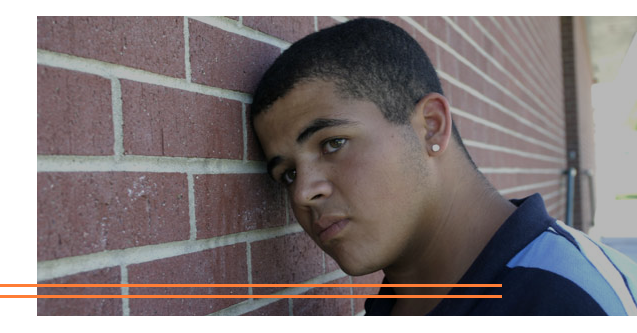About Us
Kaizen Academy is the culmination of decades-long evolution, coupled with the profound desire to lead the industry in helping adolescent boys who are struggling with sexual behavior problems. Kaizen – from our name, to our everyday practice – is about getting better. And getting better fosters hope and healing.
The word “Kaizen” (pronounced Kī – Zen) is a Japanese contraction (kai = change + zen = good) that simply means “change for the better.” In the 1980s, kaizen became known as the practice of “continuous improvement,” primarily in the automotive and manufacturing industries, and then made its way into management concepts. It was introduced to the West in 1986 by Masaaki Imai in his book, Kaizen: The Key to Japan’s Competitive Success.
At our residential treatment center for boys, it’s our desire to be the foremost leader in working with boys struggling with sexual behavior problems, the concept of Kaizen is directly related to one of our company’s core values – growth – and is in-line with our hope for every young man we work with: to change for the better. To us, our name is a constant reminder of our charge for continuous improvement.
Our vision to lead the way required a shift – a movement from “what has always been done” to embracing and implementing research-based approaches that are better-suited for our unique clientele. We recognize that while each of our young men struggles with some form of sexual behavior challenge, they battle them in their own individual ways.
Our teen RTC combines an individualized approach with research-supported clinical sophistication, built upon attachment-informed programming and experiential learning; we are living Kaizen. The following elements summarize who we are:

1. WE ARE HIGHLY SPECIALIZED, AND LASER FOCUSED ON ONE POPULATION
We work with only one population—traumatized teen boys with sexual behavior issues. We believe specialty care to be crucial in working with these boys. Generalist programs sometimes try to work with our population but it almost always ends poorly. If someone needed a doctor to remove moles, they would go to their family practitioner. If they found they had cancer, they would find the best oncologist available as soon as possible. Similarly, many simple emotional and behavioral issues are well treated by general mental health practitioners. Sexual behavior issues based in trauma require skilled, specialized care — exactly what we provide at our boys’ residential treatment center near Provo.
In a generalist setting with teens struggling in myriad ways, the shame of sexual issues keeps those issues from being addressed. No one will admit to sexual issues in a group unless all in the group have similar issues. In our specialized setting, all of our teens have similar behavioral issues and it is safe to speak truthfully and make substantive progress.
2. WE ARE PROBLEM-SOLVERS FOR HIGH-STAKES ISSUES
A Kaizen teen has found himself struggling with issues that are fraught with emotional, behavioral, relational, and social challenges, challenges that, if left un-treated, can result in serious consequences. National statistics on success rates for these teens who complete sex-specific treatment are among the highest in the mental health field. This is in-line with our own findings that the vast majority of boys who finish the treatment process are able to move forward with their lives, without falling back into these destructive patterns. The truth is, most of these young men are motivated to change. They want help. Being at Kaizen, where they are supported in their openness and honesty about their past while engaging in the focused individual, family, group, and experiential therapies, provides a powerful combination for change at our teen RTC.
3. OUR PROGRAM IS PURPOSEFUL IN ITS DESIGN TO HELP “CHANGE THE BRAIN”
Trauma and early sexually inappropriate interactions change the neurology of the brain by creating unhealthy neuropathways. At a limbic systemic level, the brain is wired such that abnormal behavior becomes normal over time. The brain is functioning in that way because of experiential input. To change that wiring requires appropriately contradictory experiential input. Repetitive, relevant, relational, rhythmic, rewarding experiences (see the work of Dr. Bruce Perry) are key to change. ALL interactions in school, the living environment, in group, in recreation build to rewire the brain and create lasting change. Normal becomes normal in our setting and abnormal is recognized as abnormal. Our students learn to desire normalcy and heal because of the experiential input at our holistic residential treatment facility for teenage boys with sexual behavior issues.

4. KAIZEN FEELS LIKE A HOME, BECAUSE IT IS A HOME – NOT A LARGE RESIDENTIAL CENTER
Kaizen’s goal is to reunite families in a home environment. We believe big institutions institutionalize teens. Teens become used to a control-environment instead of a relational-environment if they are not allowed to heal in a home-like setting. Everything from the way we staff, to the way we group our teens, to the physical aesthetics of our building at our boys residential treatment center is designed to recreate a nurturing family setting.
Helping kids to understand the need to be accountable for actions as well as the use of innovative therapy techniques for kids develop a desire to change. That desire can be harnessed into hope and healing, followed by a process of redemption and reclaiming their potential.
One of the original founders of the program, Lynn Loftin, LCMHC, said that “children aren’t defined by past behaviors, but have the ability to evolve and change. If the focus is only on the negative behaviors that usually brings a child into residential care, we’ll miss an opportunity for that child to understand his potential as a person to become healthy and happy.”
Reach out to us today if you have any questions. We’d love to hear from you.




